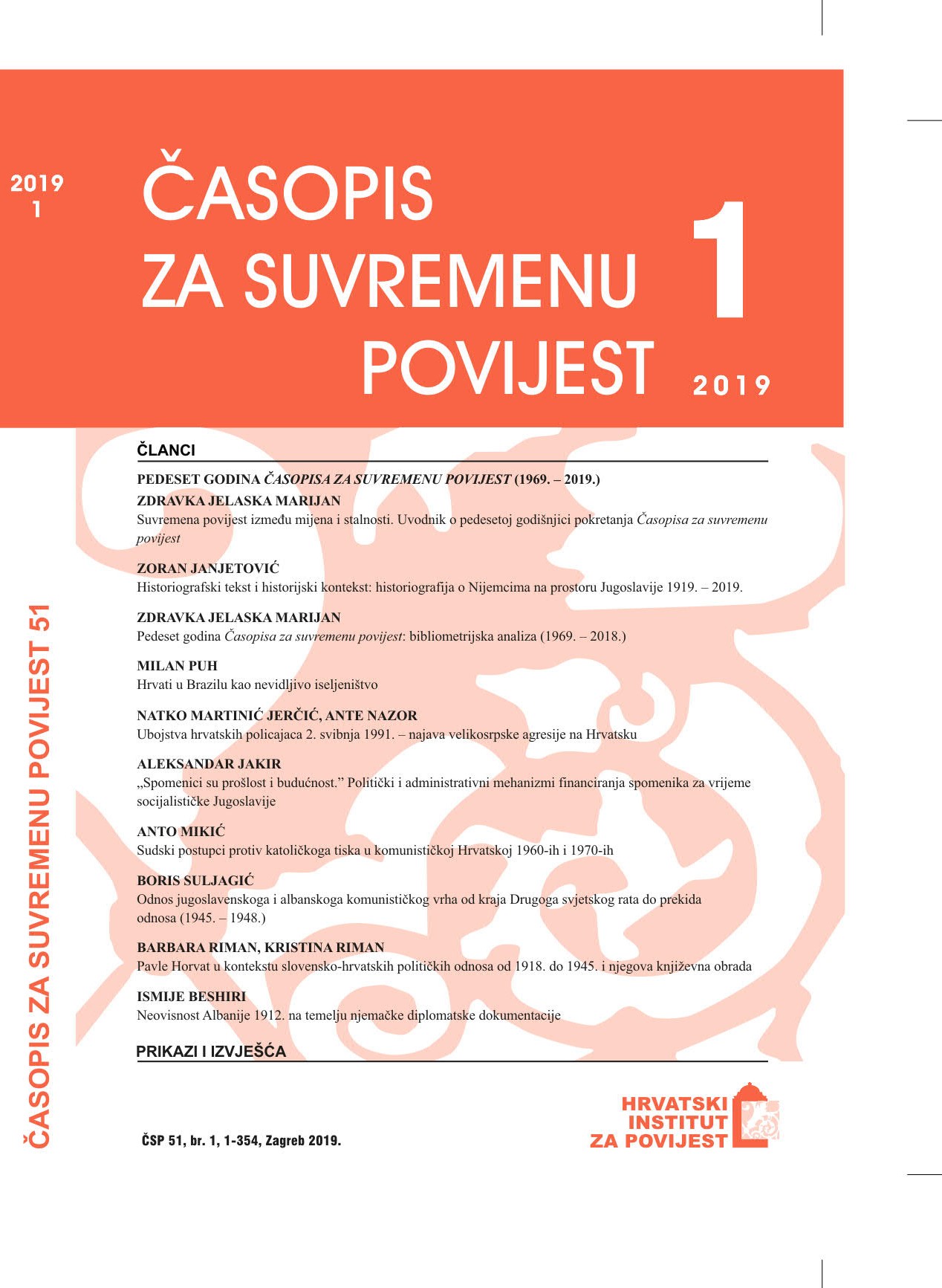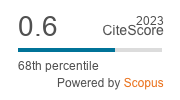Relations between the Yugoslav and Albanian Communist Leadership from the End of World War II to the Break-up of Relations (1945–1948)
DOI:
https://doi.org/10.22586/csp.v51i1.8658Keywords:
Albanian communists; Yugoslav communists; economic cooperation; military cooperation; economic plan; conflictsAbstract
The article presents the relationship between the leaders of the Communist Party of Yugoslavia and the leaders of the Communist Party of Albania from the end of World War II till the break-up of relations of the two, namely from the spring of 1945 till mid-1948. This relationship had been of crucial importance in the mentioned period since the two communist parties had totalitarian power and control over their respective countries. Nevertheless, the Albanian communists were junior partners in this close cooperation. The most important fields of cooperation were the economy and military, where Albanians were supposed to receive the help and support of Yugoslavs, and be obedient in return. The Yugoslav side demonstrated a full control over Albanian economic policy by the rejection of the Albanian economic plan in the spring of 1947. Such economic plans were the tools of communists in socialist countries that allowed them to rule their countries and wield overwhelming influence over the people. Having insight into books and articles concerning the topic, the author has discovered that some questions have not yet been fully examined. The archival fonds of the representative of the Yugoslav communists in Albania, Savo Zlatić, have not been used. Furthermore, the sheer volume of the Albanian discontent as to how the Yugoslavs had helped them has not been established so far. Therefore, the aim of this article is to compare different sources and find as many unresolved questions as possible. The topic is politically sensitive and shows how much we may learn about the political history of the 20th century or, in other words, how delicate research about political history may be, given the lack of many studies that would examine myriad relevant topics and thus prepare the conditions to make syntheses about this topic as precise and complete as possible.
The reports and writings of Savo Zlatić open up the world of misunderstandings and conflicts between the two countries and instil doubts as to whether these conflicts had something to do with differences between the peoples of the two countries, differences that the Marxist-Leninist way of thinking and approach was not capable of dealing with.
Downloads
Published
How to Cite
Issue
Section
License
Copyright (c) 2019 authors and journal

This work is licensed under a Creative Commons Attribution-NonCommercial 4.0 International License.
Copyright holders are the publisher Croatian Institute of History and the authors. Journal of Contemporary History is an Open Access journal. Users are allowed to read, download, copy, redistribute, print, search and link to material, and alter, transform, or build upon the material, or use them for any other lawful purpose as long as they attribute the source in an appropriate manner according to the Creative Commons licence CC BY-NC. The papers published in Journal of Contemporary History can be deposited and self-archived in the institutional and thematic repositories providing the link to the journal's web pages and HRČAK. Journal does not charge article processing charges (APC). The editors assume no responsibility for statements of fact or opinion made by contributors.




